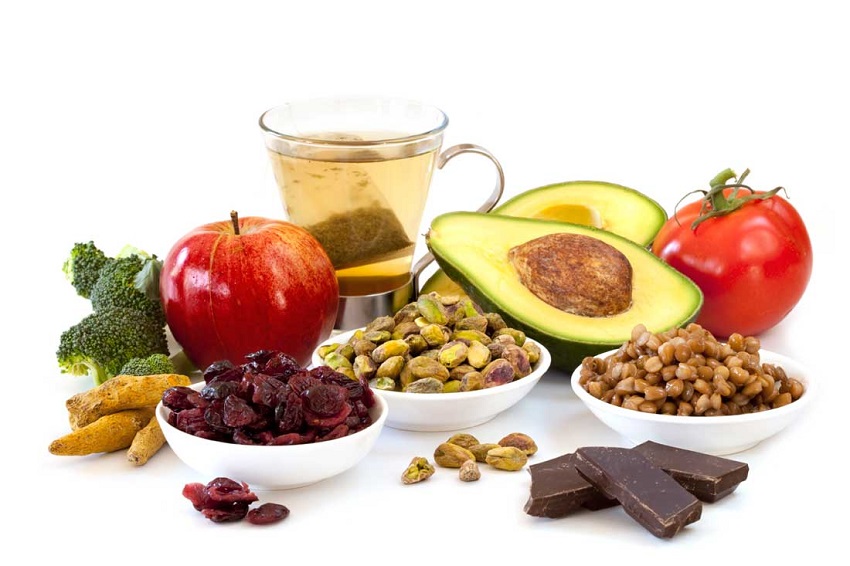Collagen — what is it and what is it good for?
Collagen is the most plentiful protein in your body.
It has various important roles, including providing structure to your skin and helping your blood clot.
In recent years, it has gained popularity as a nutritional supplement and ingredient in shampoos and body lotions.
Still, you may wonder what collagen is, as well as what it’s good for. This article gives you a thorough overview of this important protein.
WHAT IS COLLAGEN?
Collagen is the most abundant protein in your body, accounting for about one-third of its protein composition.
It’s one of the major building blocks of bones, skin, muscles, tendons, and ligaments. Collagen is also found in many other body parts, including blood vessels, corneas, and teeth.
You can think of it as the “glue” that holds all these things together. In fact, the word comes from the Greek word “kólla,” which means glue.
TYPES OF COLLAGEN
There are at least 16 types of collagen. The four main types are type I, II, III, and IV
Here’s a closer look at the four main types of collagen and their roles in your body:
Type I. This type accounts for 90% of your body’s collagen and is made of densely packed fibers. It provides structure to skin, bones, tendons, fibrous cartilage, connective tissue, and teeth.
Type II. This type is made of more loosely packed fibers and found in elastic cartilage, which cushions your joints.
Type III. This type supports the structure of muscles, organs, and arteries.
Type IV. This type helps with filtration and is found in the layers of your skin.
As you age, your body produces less and lower quality collagen.
One of the visible signs of this is in your skin, which becomes less firm and supple. Cartilage also weakens with age.
BENEFITS OF COLLAGEN SUPPLEMENTS
Benefits of collagen supplements in the following as below:
Muscle mass. A 2019 study in recreationally active men showed that a combination of collagen peptide supplements and strength training increased muscle mass and strength more than a placebo
Arthritis. A 2017 animal study looked at the effects of giving collagen supplements to mice with post-traumatic osteoarthritis (PTOA). The results indicated that supplementation may play a protective role in the disease’s development and progression.
Skin elasticity. Women who took a supplement showed improvements in skin appearance and elasticity in a 2019 study. Collagen is also used in topical treatments to improve the appearance of skin by minimizing lines and wrinkles.
Some alternative medicine practitioners also advocate using collagen supplements to treat leaky gut syndrome.
TAKING SUPPLEMENTS THAT CONTAIN COLLAGEN
Collagen supplementation is the best way to absorb collagen directly, although there are foods you can consume which will help your body create more collagen, and once you hit 25 you start to break down more collagen than your body makes. That’s why you can start to see fine lines and wrinkles from this age onwards.
It’s also noted that a high proportion of those over 50 are failing to reach the recommended intake for many of the nutrients which are responsible for helping your body with collagen production and for healthy hair, skin and even nails too, therefore a good supplement is a convenient way to reap the benefits of this protein powerhouse as you age.
Collagen consumption can help to increase skin elasticity and support your body’s skin repair process and encourage your body to form new collagen. It can increase skin hydration and smoothness and reduce the appearance of wrinkles.
Studies have also shown that by regularly taking collagen it can improve overall skin health and combat the effects of ageing and the best way your gut immediately absorbs it and sends it directly to your skin through your bloodstream.
NUTRIENTS THAT INCREASE COLLAGEN PRODUCTION
All collagen starts off as procollagen. Your body makes procollagen by combining two amino acids — glycine and proline. This process uses vitamin C.
You may be able to help your body produce this important protein by making sure you get plenty of the following nutrients:
Vitamin C. Large amounts are found in citrus fruits, bell peppers, and strawberries.
Proline. Large amounts are found in egg whites, wheat germ, dairy products, cabbage, asparagus, and mushrooms.
Glycine. Large amounts are found in pork skin, chicken skin, and gelatin, but glycine is also found in various protein-containing foods.
Copper. Large amounts are found in organ meats, sesame seeds, cocoa powder, cashews, and lentils.
In addition, your body needs high quality protein that contains the amino acids needed to make new proteins. Meat, poultry, seafood, dairy, legumes, and tofu are all excellent sources of amino acids.

THINGS THAT DAMAGE COLLAGEN
Perhaps it’s even more important to avoid the following collagen-destroying behaviors:
Eating too much sugar and refined carbs. Sugar interferes with collagen’s ability to repair itself. Minimize your consumption of added sugar and refined carbs.
Getting too much sunshine. Ultraviolet radiation can reduce collagen production. Avoid excessive sun exposure.
Smoking. Smoking reduces collagen production. This can impair wound healing and lead to wrinkles.
Some autoimmune disorders, such as lupus, can also damage collagen.
Written by Kerri-Ann Jennings, MS, RD on May 5, 2020
Medically reviewed by Cynthia Cobb, DNP, APRN, WHNP-BC, FAANP
Reference source
https://www.healthline.com/nutrition/collagen
- Lodish H, Berk A, Zipursky SL, et al. New York: W. H. Freeman; 2000, “Molecular Cell Biology. 4th edition – Section 22.3: Collagen, The Fibrous Proteins of the Matrix”
https://www.ncbi.nlm.nih.gov/books/NBK21582/
https://nutritiondata.self.com/foods-009101000000000000000-w.html
https://nutritiondata.self.com/foods-000095000000000000000.html
https://nutritiondata.self.com/foods-000094000000000000000.html
https://nutritiondata.self.com/foods-000125000000000000000-1.html
- William Dan by MD, “Nutrition and aging skin: sugar and glycation”
https://pubmed.ncbi.nlm.nih.gov/20620757/
- Ricardo Bosch, Neena Philips, Jorge A. Suárez-Pérez, Angeles Juarranz, Avani Devmurari, Jovinna Chalensouk-Khaosaat, and Salvador González,“Mechanisms of Photoaging and Cutaneous Photocarcinogenesis, and Photoprotective Strategies with Phytochemicals”
https://www.ncbi.nlm.nih.gov/pmc/articles/PMC4665475/
- A Knuutinen, N Kokkonen, J Risteli, K Vähäkangas, M Kallioinen, T Salo, T Sorsa, A Oikarinen, “Smoking affects collagen synthesis and extracellular matrix turnover in human skin”
https://pubmed.ncbi.nlm.nih.gov/11966688/
- Vanessa Oertzen-Hagemann, Marius Kirmse, Britta Eggers, Kathy Pfeiffer, Katrin Marcus, Markus de Marées, and Petra Platen,“ Effects of 12 Weeks of Hypertrophy Resistance Exercise Training Combined with Collagen Peptide Supplementation on the Skeletal Muscle Proteome in Recreationally Active Men”
https://www.ncbi.nlm.nih.gov/pmc/articles/PMC6566884/
- Qurratul-Ain Dar, Eric M. Schott, Sarah E. Catheline, Robert D. Maynard, Zhaoyang Liu, Fadia Kamal, Christopher W. Farnsworth, John P. Ketz, Robert A. Mooney, Matthew J. Hilton, Jennifer H. Jonason, Janne Prawitt, and Michael J. Zuscik, Sudha Agarwal, Editor “Daily oral consumption of hydrolyzed type 1 collagen is chondroprotective and anti-inflammatory in murine posttraumatic osteoarthritis”
https://www.ncbi.nlm.nih.gov/pmc/articles/PMC5383229/
- Liane Bolke, Gerrit Schlippe, Joachim Gerß, and Werner Voss “A Collagen Supplement Improves Skin Hydration, Elasticity, Roughness, and Density: Results of a Randomized, Placebo-Controlled, Blind Study”
https://www.ncbi.nlm.nih.gov/pmc/articles/PMC6835901/
- David L. Vollmer, Virginia A. West, and Edwin D. Lephart, “Enhancing Skin Health: By Oral Administration of Natural Compounds and Minerals with Implications to the Dermal Microbiome”
https://www.ncbi.nlm.nih.gov/pmc/articles/PMC6213755/

